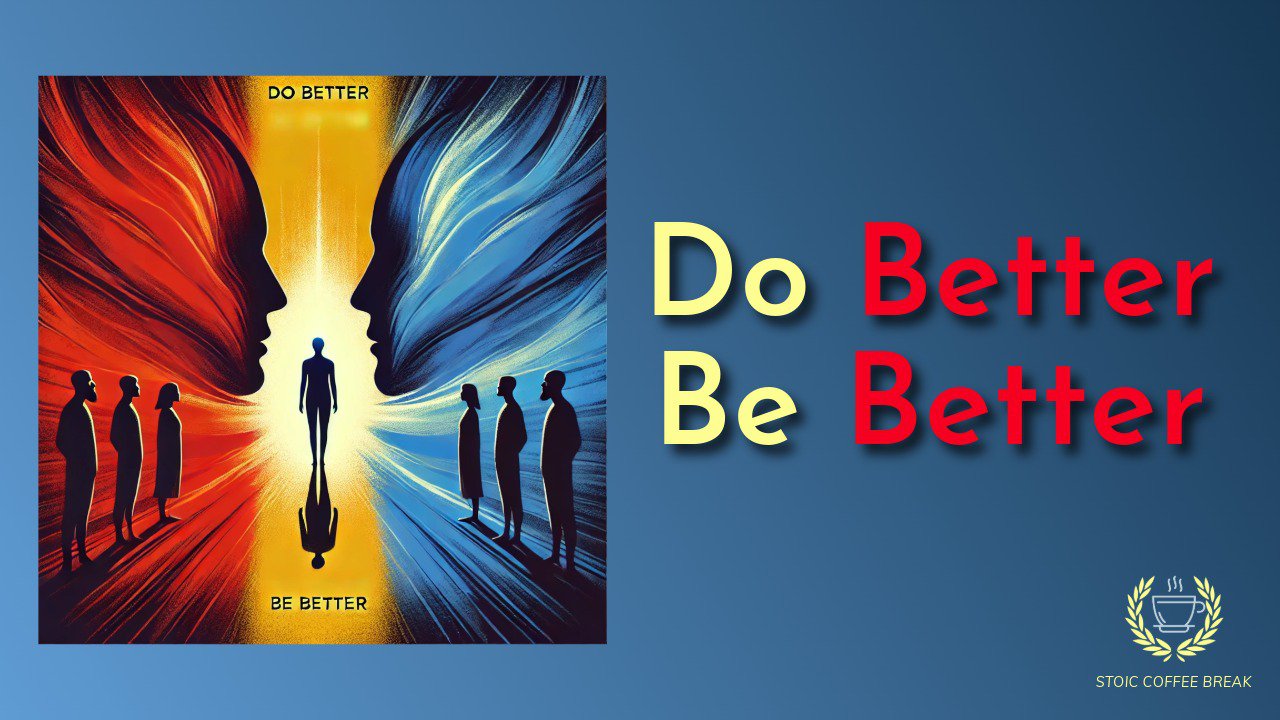Tag: others
-

333 – Do Better, Be Better: Maintaining Stoic Virtue in Times of Turmoil
In times of political division, it’s tempting to let anger and fear drive our actions. But what if we embraced Stoic principles instead? Explore why maintaining wisdom, justice, courage, and temperance is essential for a better society. Discover how to rise above tribalism, fear, and cruelty to create real, impactful change. Raise the bar –…
-

327 – Why Individualism Fails
“The wise man will never shut himself up within his own skin; he remembers that he is born for the good of all mankind.” —Seneca Individualism promises freedom and self-reliance, but it often leads to isolation and unrealistic expectations. Stoicism teaches us the importance of interconnectedness and shared purpose, reminding us that true strength comes…
-

284 – Q & A – Daily Life, God, Difficult People, and Politics
This week’s episode is a Q & A edition. I talk about how to practice stoicism in daily life, god, dealing with difficult people, and who would Marcus Aurelius vote for!
-

232 – QTIP
Not to display anger or other emotions. To be free of passion and yet full of love. —Marcus Aurelius. How often do you take what other people say and do personally? How often do you feel like you have to “fix” someone else’s mood? Today I want to talk about emotional responsibility, and how it…
-

223 – Changing Others
When someone is properly grounded in life, they shouldn’t have to look outside themselves for approval. — Epictetus. Why do we spend so much time trying to change other people or expecting that other people will change for us?
-
127 – Laugh in The Face Of Evil
“If evil be said of thee, and if it be true, correct thyself; if it be a lie, laugh at it.” ― Epictetus Show Notes: When I read this quote the first thing that came to mind was “I laugh in the face of evil!” 🙂 How often do we get upset at what…
-
117 – Do Good of Your Own Accord
“Even as the Sun does not wait for prayers and incantations to rise, but shines forth and is welcomed by all: so should you not wait for clapping of hands and shouts and praise to do your duty; nay, do good of your own accord, and you will be loved like the Sun.” ―…
-
108 – Opinion Of The Self
“I have often wondered how it is that every man loves himself more than all the rest of men, but yet sets less value on his own opinion of himself than on the opinion of others.” — Marcus Aurelius Photo by Sergiu Vălenaș on Unsplash